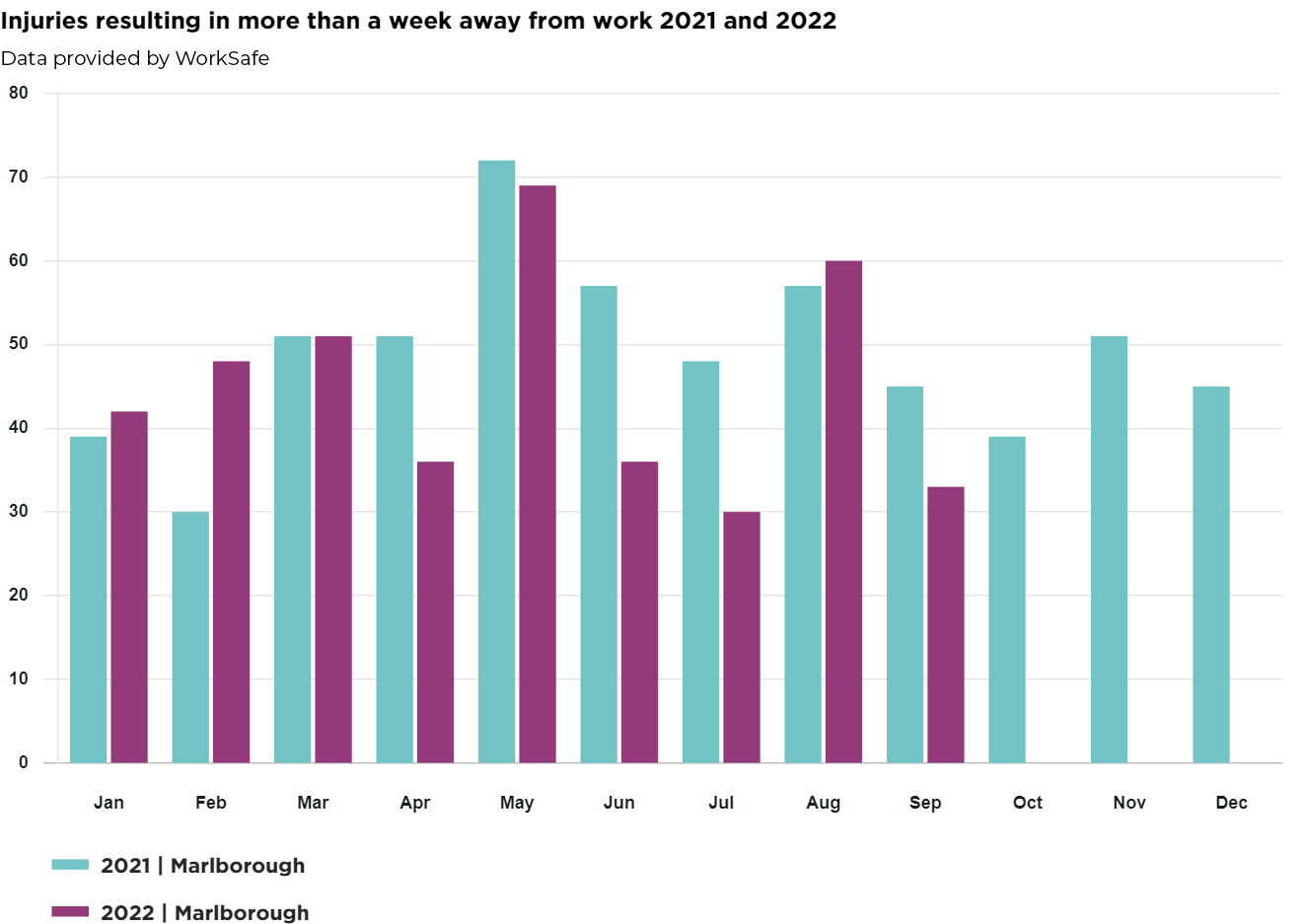As a business owner operating in New Zealand, it's important to understand the health and safety legal requirements that apply to your business. These requirements are designed to protect the health and safety of your employees, customers, and other stakeholders, and failure to comply with them can result in significant fines, legal action, and damage to your business's reputation.
It's worth noting that from October 2021 to September 2022, there were a total of 42 work-related injuries reported in Marlborough that resulted in more than a week of absence from work. This averages out to about 3.5 incidents per month. However, there were particularly high numbers of incidents in the months of December, January, August, and September, with 6 reported incidents in each of those months.


In addition to the legal requirements listed below, businesses operating in New Zealand are also required to follow other health and safety laws and regulations that apply to their specific industry or sector. For example, businesses in the food industry are required to follow the Food Act 2014 and the Food Safety Standards, and businesses in the construction industry are required to follow the Building Act 2004 and the Building Code.
In addition to helping businesses comply with legal requirements, health and safety training can also provide other benefits. For example, it can help businesses reduce the risk of accidents and injuries, which can save money by reducing the cost of workers' compensation claims and lost productivity. Health and safety training can also improve morale and engagement among employees, by showing that the business cares about their wellbeing and is committed to providing a safe and healthy workplace.
Health and safety training is an important part of a comprehensive approach to managing health and safety in the workplace. By providing employees with the knowledge and skills they need to work safely and effectively, you can protect the health and safety of your employees, customers, and other stakeholders, and avoid significant fines and legal action.
Looking for training?
Check out our upcoming Health & Safety workshops
Here are some key health and safety legal requirements for businesses operating in New Zealand:
1. The Health and Safety at Work Act 2015 (HSWA). The HSWA is the primary legislation governing health and safety in the workplace in New Zealand. It sets out the general duties and obligations of businesses, including the duty to take all reasonably practicable steps to ensure the health and safety of employees, customers, and other people who may be affected by the business's activities. The HSWA also establishes the role of Worksafe New Zealand, the government agency responsible for enforcing health and safety laws in the workplace.
2. The Health and Safety in Employment Regulations 1995. These regulations provide more detailed requirements for specific industries and activities, such as construction, forestry, and mining. For example, the regulations may require businesses in these industries to have specific policies, procedures, and training in place to ensure the health and safety of their employees.
3. The Health and Safety in Employment (Hazardous Substances) Regulations 2017. These regulations apply to businesses that use, handle, store, or transport hazardous substances. The regulations specify the requirements for identifying and managing the risks associated with these substances, including the need to provide appropriate training, safety equipment, and emergency procedures.
4. The Health and Safety in Employment (First Aid) Regulations 2016. These regulations apply to businesses that have employees who may be injured or become ill at work. The regulations require businesses to provide appropriate first aid equipment and facilities, and to ensure that employees are trained in first aid and are able to provide assistance in an emergency.
